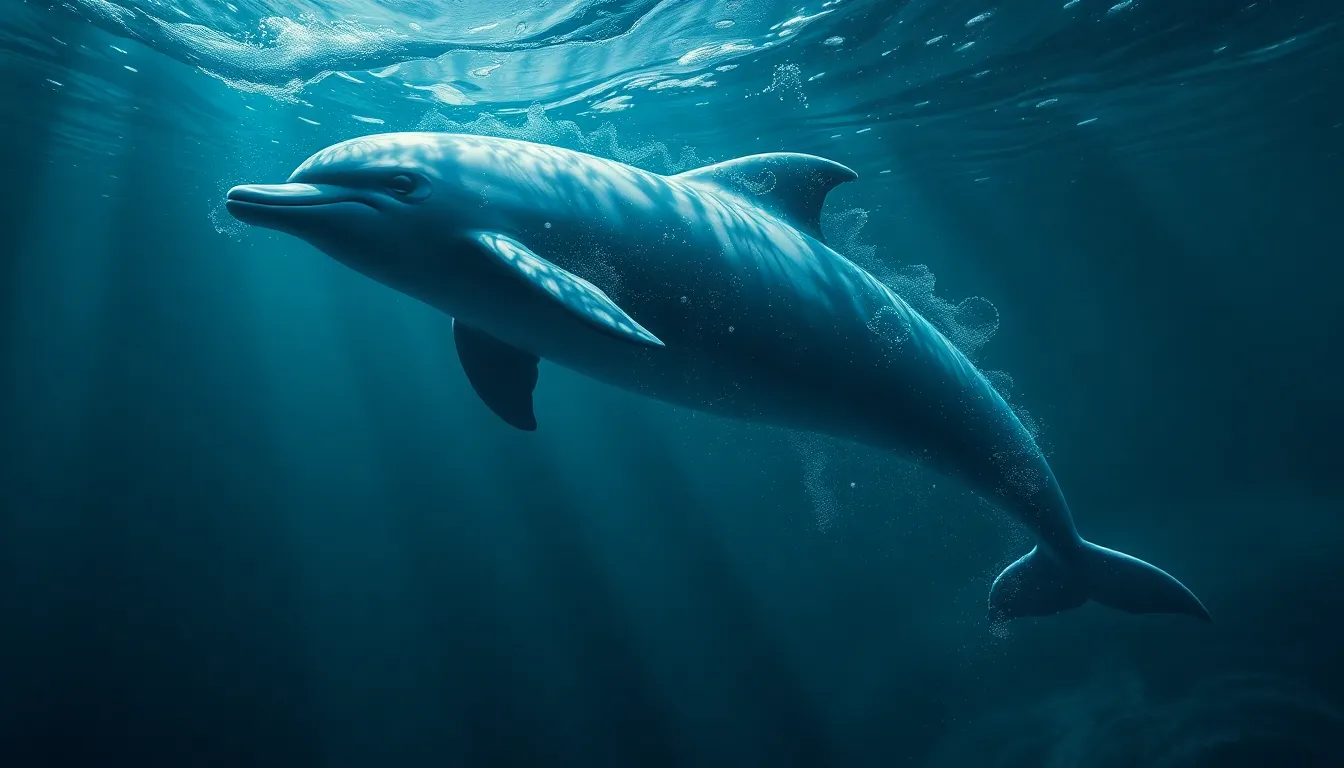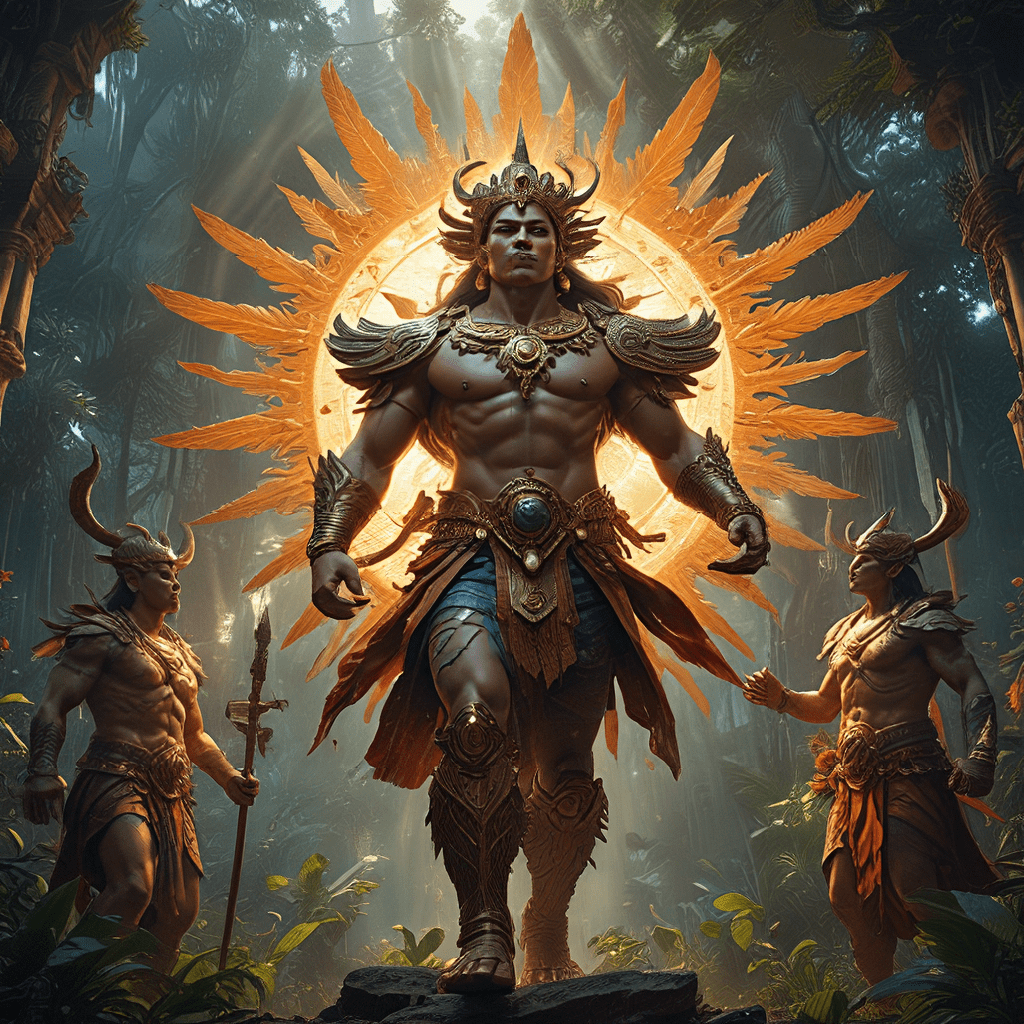The Sacred Dolphin: Intelligence and Playfulness in Myths
1. Introduction
Dolphins have captivated human imagination for centuries, appearing in various cultures and mythologies as symbols of intelligence, joy, and freedom. Their remarkable behavior and social structures have led to numerous interpretations of their significance across different civilizations. Understanding the symbolic importance of dolphins allows us to appreciate not only their ecological role but also their cultural impact. This article explores the multifaceted nature of dolphins in mythology, their intelligence, and their enduring legacy in human culture.
2. The Dolphin in Ancient Civilizations
Throughout history, dolphins have held a prominent place in the myths and stories of ancient civilizations. Their graceful movements and playful behavior have led to rich symbolism in various cultures.
- Dolphins in Greek mythology: In ancient Greece, dolphins were revered as symbols of the sea, often associated with the god Poseidon. They were believed to guide souls to the afterlife and were seen as protectors of sailors.
- The role of dolphins in Indigenous cultures: Many Indigenous cultures, such as the Māori of New Zealand, viewed dolphins as sacred beings, often integrating them into their spiritual beliefs and practices.
- Egyptian and Roman interpretations of dolphins: In ancient Egypt, dolphins were associated with the goddess Hathor and were seen as symbols of protection and joy. The Romans celebrated dolphins in their art and literature, often portraying them as companions to sailors.
3. The Intelligence of Dolphins
Dolphins are known for their exceptional intelligence, showcasing advanced communication skills and complex social structures.
- Overview of dolphin intelligence: Dolphins possess sophisticated vocalizations and body language, enabling them to communicate effectively within their pods.
- Scientific studies on dolphin cognition: Research has demonstrated that dolphins can solve problems, recognize themselves in mirrors, and even understand abstract concepts.
- The relationship between intelligence and playful behavior: Their intelligence contributes to their playful nature, as they engage in games with each other and even with humans.
4. Dolphins as Symbols of Joy and Freedom
The playful nature of dolphins has led them to be seen as embodiments of joy and freedom in various cultural narratives.
- The playful nature of dolphins in myths: Many stories depict dolphins frolicking in the waves, symbolizing the freedom of the ocean and the joy of living.
- Symbolism of dolphins in literature and art: Artists and writers have often used dolphins as symbols of happiness, reflecting their buoyant spirit and lively demeanor.
- Cultural representations: In many cultures, dolphins are viewed as messengers of joy, bringing good fortune to those who encounter them.
5. Dolphins in Modern Myths and Folklore
In contemporary society, dolphins continue to inspire new myths and stories that reflect changing cultural values.
- Contemporary interpretations: Dolphins are frequently depicted in films and literature as intelligent and empathetic beings, often serving as heroes in narratives.
- The emergence of dolphin-themed spirituality: Many wellness practices now incorporate dolphin symbolism, emphasizing healing and connection with nature.
- Environmental narratives: Modern myths often highlight the plight of dolphins, emphasizing the need for conservation and respect for marine life.
6. The Significance of Dolphin Playfulness
Dolphin playfulness is not only a defining characteristic but also a significant aspect of their behavior that has implications for human understanding.
- How playfulness is portrayed in myths: Across cultures, dolphins are often depicted engaging in playful antics, showcasing their intelligence and social nature.
- The role of play in dolphin behavior: Playful behavior among dolphins is crucial for social bonding, learning, and physical development.
- Comparative analysis: While many animals exhibit playfulness, dolphins’ unique social structures and environments highlight their extraordinary capabilities.
7. The Dolphin as a Protector and Guide
Myths often depict dolphins as guardians, reflecting their roles in human experiences at sea.
- Myths depicting dolphins as protectors: Many legends describe dolphins guiding lost sailors to safety, symbolizing hope and assistance.
- Stories of dolphin rescues: Numerous accounts exist of dolphins rescuing swimmers in distress, reinforcing their reputation as protectors.
- Spiritual interpretations: In various cultures, dolphins are seen as spiritual guides, leading individuals on journeys of self-discovery.
8. The Intersection of Science and Mythology
The relationship between scientific discoveries and cultural narratives creates a rich tapestry of understanding around dolphins.
- Scientific discoveries: Research on dolphin behavior and intelligence has influenced how they are perceived in myths and stories.
- The blending of perspectives: As science uncovers more about dolphin cognition, cultural narratives often adapt to incorporate these findings.
- Case studies: Marine research and conservation efforts increasingly highlight dolphins, emphasizing their ecological importance and cultural significance.
9. Ethical Considerations and Conservation
The mythology surrounding dolphins has implications for their conservation and ethical treatment.
- The impact of mythology on conservation: Cultural reverence for dolphins can drive conservation efforts, inspiring communities to protect marine environments.
- Ethical implications: The capture of dolphins for entertainment raises significant ethical concerns, challenging societal views on animal rights.
- Role of myths: Myths can promote awareness about the importance of protecting dolphin habitats and maintaining biodiversity.
10. Conclusion
Dolphins occupy a unique position in mythology and culture, embodying intelligence, playfulness, and freedom. Their portrayal in ancient civilizations and modern narratives highlights their significance to humanity. As we continue to explore the depths of their intelligence and the richness of their symbolism, we must also advocate for their conservation and ethical treatment. By appreciating the legacy of dolphins, we can ensure that these magnificent creatures remain a vibrant part of our world for generations to come.



